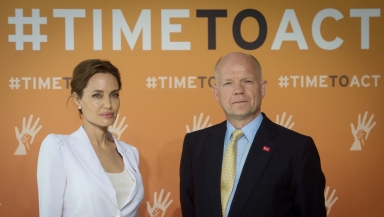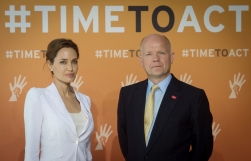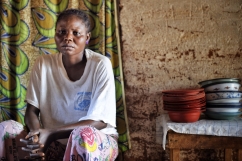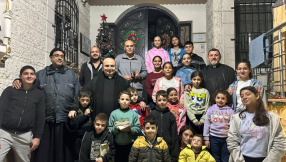
There was a time when women were told not to speak, but times have changed, said a senior African government minister at a conference addressing the role faith plays in ending sexual violence.
"In Africa, most of our religious leaders hide behind tradition - they shy away," said Julia Duncan-Cassell, Liberia's Minister of Gender and Development.
She called for all religious leaders, of every faith, to stop hiding and to be willing to step out, stand alongside victims and change traditions as part of the fight to end sexual violence.
The panel discussion, held as part of the Global Summit to End Sexual Violence in Conflict at the ExCel Centre in London, brought together religious leaders of different faiths from across the globe. Included was a video contribution from Justin Welby, Archbishop of Canterbury. "Historically, there has been a culture of impunity," Welby said. "Faith leaders are challenging that culture fiercely."
Organised by We Will Speak Out, a coalition of faith-based organisations, and the Foreign Commonwealth Office, the panel of faith leaders were asked about the role of the Church in ending rape in conflict, how to engage religious leaders who aren't participating, and the negative role religious groups have played in this issue.
"It is our job as religious leaders to talk about the unspeakable," Rabbi Shulamiut Ambalu said. "And to say to people, 'you are loved'." Ambalu echoed the message UNHCR Special Envoy Angelina Jolie brought as she opened the summit – the shame does not belong to the victim.
As different religious voices answered questions from the floor, the message grew louder – faith-based organisations have the power to make a massive impact in the fight to end rape in conflict if they work alongside each other and with government organisations. It was agreed that, in many cases, the Church is uniquely placed to reach out to communities in conflict situations and to change perceptions.
"It has been said the Church is a sleeping giant," said Archbishop Onesphore, of the Anglican Church of Rwanda. "Let us get up!"















